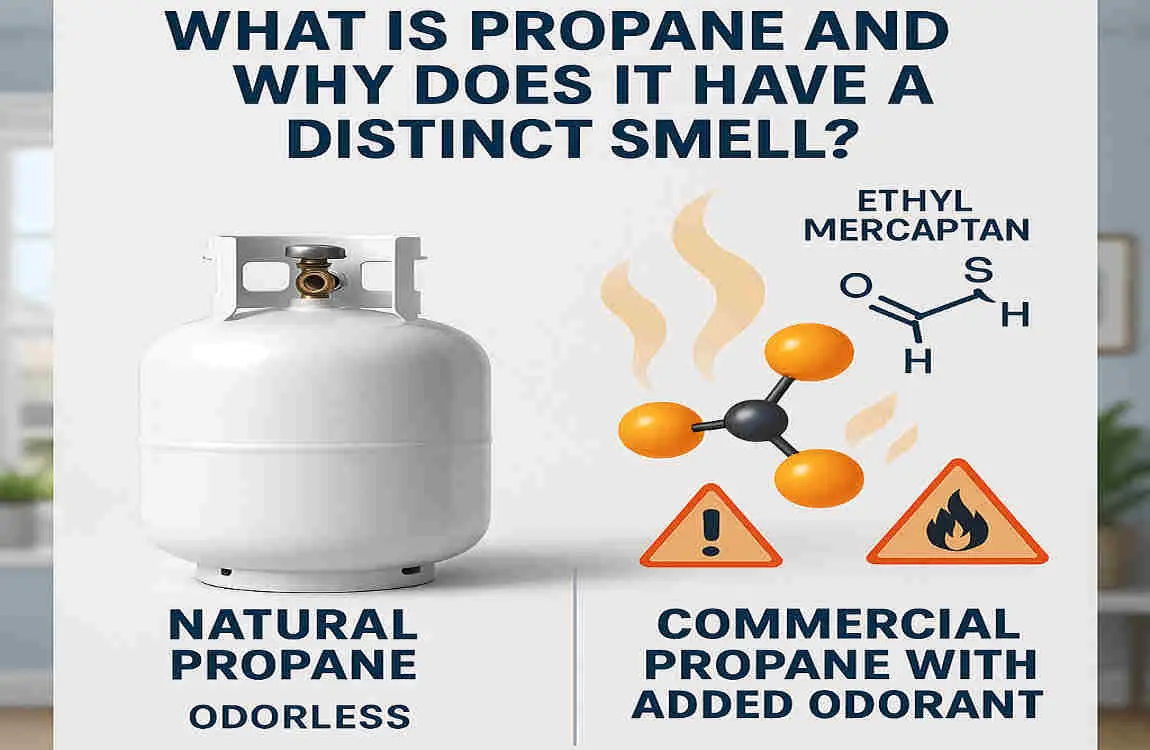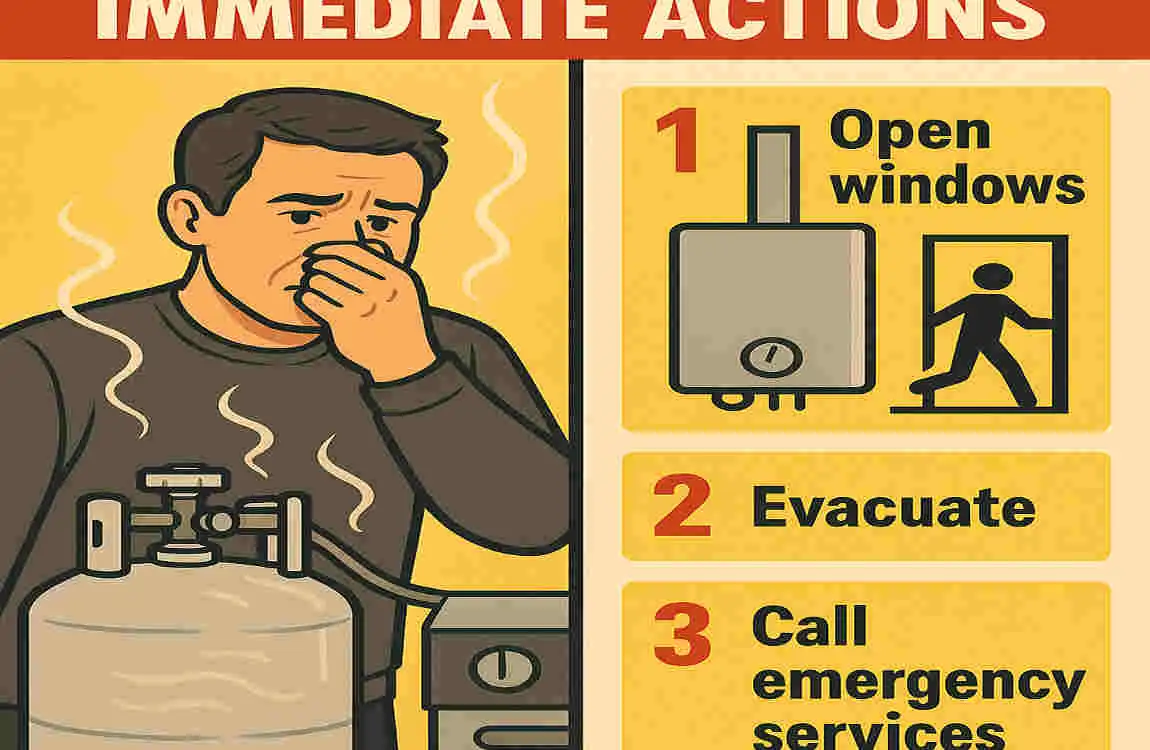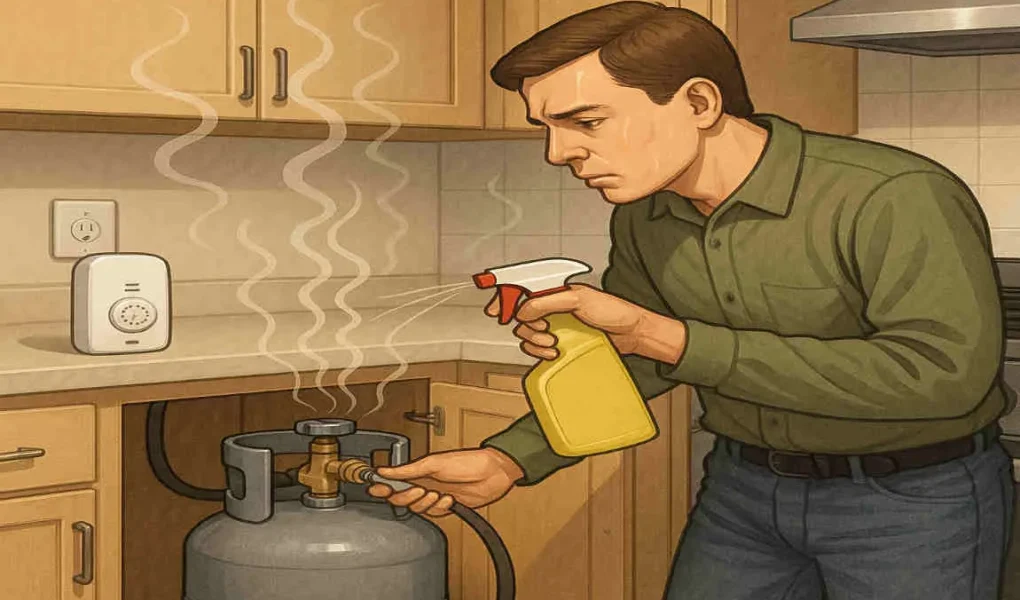Propane is a common and versatile fuel used in many homes across the world. Whether it’s powering your heating system, cooking your meals, or running appliances like water heaters and dryers, propane plays a vital role in everyday life. Its convenience and efficiency make it a popular choice for many homeowners.
However, propane comes with safety concerns that every household should be aware of. One of the most critical safety aspects is recognizing the home smell of propane inside your house. But what does propane smell like in a home? This question is crucial because detecting propane leaks early can prevent dangerous accidents.
What is Propane and Why Does It Have a Distinct Smell?

Propane is a type of gas commonly used as fuel. It’s a byproduct of natural gas processing and crude oil refining. In its natural state, propane is colorless and odorless—which might sound like a good thing, but it actually poses a safety risk.
Because propane naturally has no smell, gas companies add a special chemical called an odorant to it before it reaches your home. The most common odorant used is called ethyl mercaptan. This chemical has a powerful and distinctive odor that helps people detect even the most minor leaks.
So, what exactly does propane smell like?
- Many describe it as a rotten egg or sulfur-like odor.
- Some compare it to the smell of a skunk or garlic.
- The scent is sharp and unpleasant, explicitly designed to alert you to danger.
Why is this smell so important? If propane leaked into your home unnoticed, it could build up and potentially cause explosions or fires. The odorant acts as an early warning system, giving you time to react before things get dangerous.
Recognizing the Smell of Propane in a House
Understanding what propane smells like inside your home is key to keeping your family safe. When propane leaks in a house, the distinctive odor becomes your first clue.
What Does Propane Smell Like Inside a Home?
Inside a home, propane smells very similar to the outdoor description—a strong rotten egg or sulfur scent. Sometimes, it can be subtle or faint, especially if the leak is minor. Because of this, it’s important to be alert and not dismiss a faint smell.
You may also read (how to implement effective pest control in home renovations).
Common Areas Where You Might Notice the Smell
- Kitchen: Near propane stoves or ovens.
- Basement: Around propane water heaters or furnaces.
- Garage: Where propane tanks or grills might be stored.
- Near any propane appliances or lines running through your home.
How to Differentiate Propane Smell from Other Household Odors
It’s easy to confuse propane with other smells. Here’s how propane differs:
- Natural gas smells similar but usually has a slightly sweeter or musty scent.
- Sewage or mold odors tend to be more earthy or damp, not sharp.
- Skunk smell outside is stronger and more pungent than propane indoors.
Small Leaks vs. Large Leaks
- Small leaks produce a faint odor that can be easily missed or mistaken for something else.
- Large leaks release more propane, leading to a strong, unmistakable rotten egg smell.
Factors Affecting How You Perceive the Smell
- Ventilation: A well-ventilated home might dilute the smell.
- House size: Larger homes may have less concentrated odors.
- Personal sensitivity: Some people are more sensitive to smells than others.
Common Causes and Locations of Propane Leaks in Homes
Knowing where and why propane leaks happen can help you watch out for trouble.
Typical Causes of Propane Leaks
- Defective appliances: Stoves, heaters, and grills that have worn-out parts or cracks.
- Damaged propane tanks or piping: Corrosion, rust, or physical damage can cause leaks.
- Poor installation or maintenance: Faulty connections or improper fitting can allow gas to escape.
- Accidental punctures: Nails or sharp objects might pierce pipes or tanks.
- Signs besides smell: You might hear a hissing sound near a leak or see dead plants close to tanks or lines.
Common Leak Locations
Location Description: Why Leaks Occur
Kitchen Around propane stoves and ovens, Loose connections or damaged burners
Basement near water heaters or furnaces, Pipe corrosion or faulty valves
Garage Storage area for propane tanks and grills. Tank damage or improper storage
Outdoor tanks above or underground, propane tanks, Physical damage or rust
Pipe connections anywhere lines connect appliances or tanks, Poor fittings or wear and tear
What to Do If You Smell Propane in Your Home

Smelling propane can be alarming, but knowing what steps to take immediately can protect you and your loved ones.
Immediate Actions to Take
- Evacuate everyone: Get all family members and pets out of the house right away.
- Avoid sparks or flames: Do not turn on/off lights, appliances, or use phones inside the home.
- Do not try to locate the leak yourself: Leave that to professionals.
- Call for help: From a safe location outside, contact emergency services and your propane supplier.
- Ventilate if safe: If possible and safe, open windows and doors to disperse the gas.
Why You Should Never Ignore Even a Faint Smell
Even a tiny leak can lead to dangerous of house gas buildup. It’s better to be cautious and act quickly than to risk an explosion or poisoning.
Preventive Measures
- Schedule regular professional inspections of your propane system.
- Fix or replace faulty appliances promptly.
- Keep propane tanks in good condition and properly stored.
Propane Safety Tips for Homeowners
Keeping your home safe when using propane requires proactive care.
Key Safety Tips
- Install propane detectors: These alarms sense propane gas and alert you early.
- Regular appliance checks: Look for wear, rust, or loose fittings.
- Proper tank placement: Keep tanks outdoors, away from heat sources and vents.
- Good ventilation: Ensure rooms with propane appliances have adequate airflow.
- Educate your family: Teach everyone how propane smells and what to do if they detect it.
- Safe storage: Store small propane canisters upright, in cool, ventilated spots.
You may also read (factors driving house cleaning costs what you should know).




